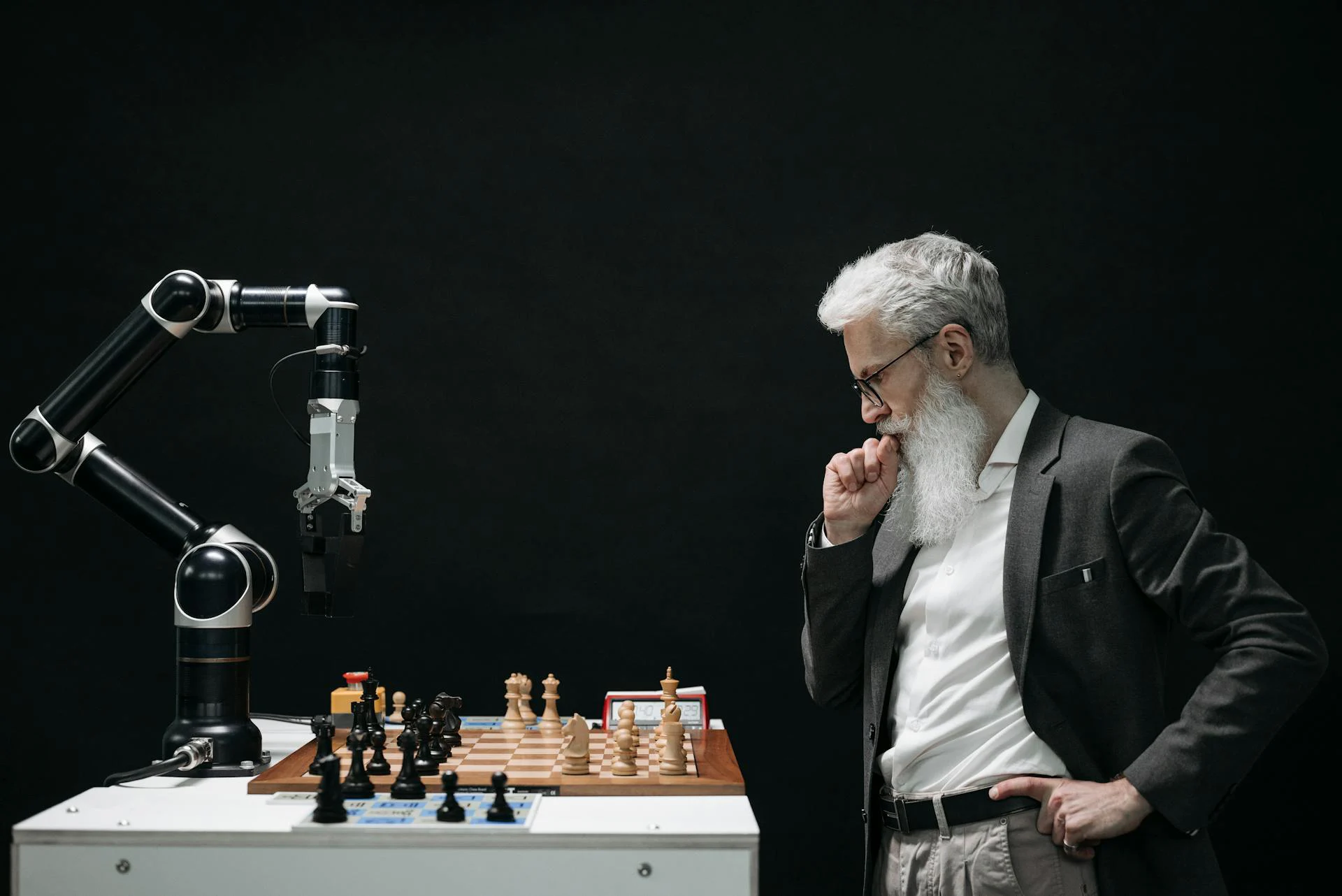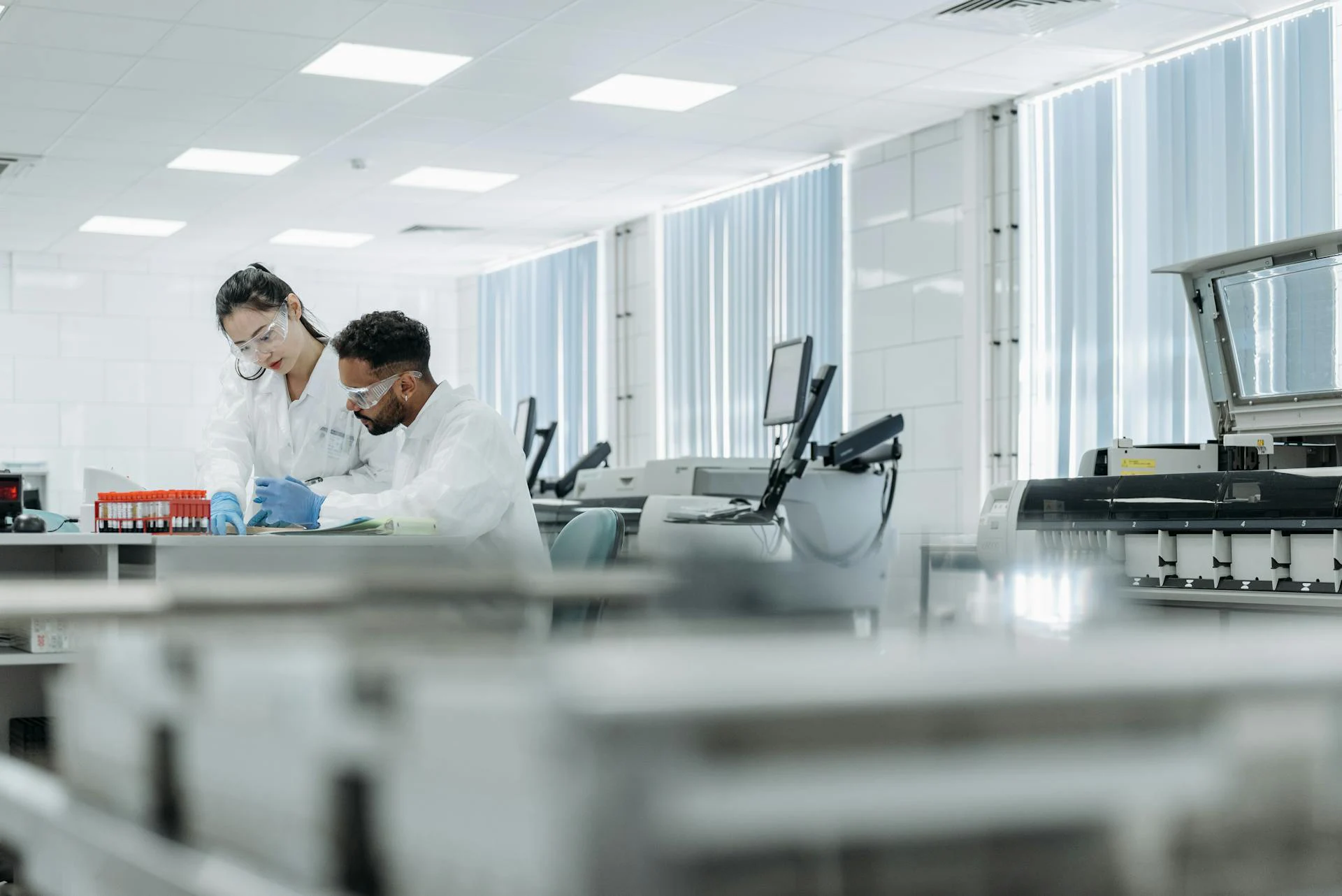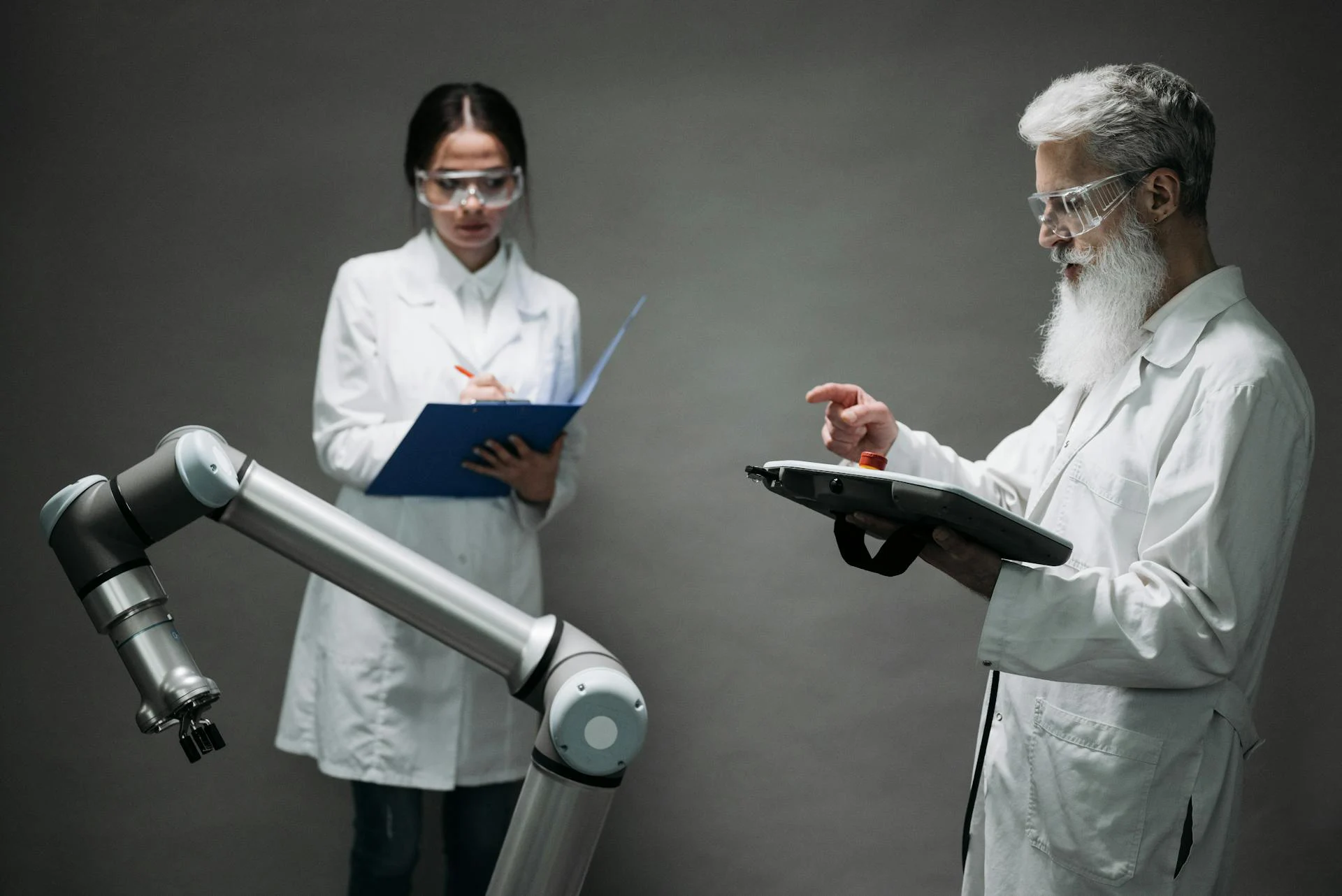
7 Jobs That Will Evolve with AI by 2026
Introduction:
The rise of Artificial Intelligence (AI) is more than a technological trend it’s a creative revolution changing how we think, work, and grow. As automation and intelligent systems continue to evolve, jobs around the world are transforming faster than ever before. By 2026, industries will look dramatically different not because AI is replacing people, but because it’s empowering humans to work smarter, faster, and more creatively.
This guide explores the 7 jobs that will evolve with AI by 2026, how they’re changing, and how you can prepare yourself for this new era of human–machine collaboration.
Discover how AI is transforming the job landscape! Learn about 7 jobs that will evolve withJobs That Will Evolve with AI and how you can future-proof your career in the age of automation and innovation.

1. Data Analysts and Scientists – From Data Crunchers to Insight Architects
Data has become the new gold, and AI is the ultimate mining tool. By 2026, data analysts and scientists will no longer spend their time cleaning or sorting data AI will do that instantly. Instead, their role will evolve into interpreting complex data patterns and translating them into business insights.
Jobs That Will Evolve with AI-driven analytics platforms can already predict customer behaviors and optimize marketing strategies. Yet, human judgment remains essential to guide these systems ethically and strategically.
Jobs That Will Evolve with AI Impact on Human Imagination is clear here it frees analysts from tedious calculations and encourages them to think creatively, transforming numbers into stories that shape decisions.
Future Tip: Learn AI-based analytics tools like Tableau AI or Google Cloud AutoML to stay ahead in this evolving field.
2. Healthcare Professionals – Blending Empathy with AI Precision
The healthcare industry is one of the biggest beneficiaries ofJobs That Will Evolve with AI. From early diagnosis to robotic-assisted surgery, AI enhances accuracy and efficiency. But instead of replacing doctors or nurses, AI is augmenting their ability to care.
By 2026, medical professionals will use Jobs That Will Evolve with AI to interpret scans, predict patient risks, and recommend treatments — while maintaining the emotional intelligence that machines can’t replicate.
For example, radiologists may rely on AI to detect anomalies in X-rays faster, while they focus on patient care and communication. The result is not job loss, but job evolution, where technology becomes a trusted assistant.
Power Keyword: Human-AI Synergy this balance between compassion and computation defines the future of healthcare.
3. Teachers and Educators – From Information Providers to Learning Designers
Education is entering a new era powered by AI personalization. By 2026, teachers won’t just deliver lectures; they’ll design learning experiences using AI insights.
AI-powered tools can identify student weaknesses, recommend study materials, and track progress. This frees educators to focus on mentoring and creativity, instead of grading or administrative tasks.
In essence, AI helps teachers teach humans better. The classroom becomes a hybrid space of emotional connection and intelligent guidance a perfect example of how AI Impact on Human Imagination fuels innovation in education.
Future Tip: Familiarize yourself with adaptive learning systems like ChatGPT, Coursera AI, or Khan Academy’s new AI tutors to stay relevant in education’s digital shift.
4. Marketing Professionals – Creativity Meets Automation
The marketing landscape is changing rapidly. By 2026, marketers won’t just create ads; they’ll collaborate with AI to design hyper-personalized campaigns that feel human.
AI already predicts trends, analyzes emotions from social media, and writes ad copy. But the human touch storytelling, empathy, and emotion remains irreplaceable. The best marketers will be those who blend AI efficiency with creative intuition.
Imagine using AI to generate 100 ad ideas, then refining them into one powerful campaign that connects emotionally with millions. That’s the future of AI-driven creativity where technology amplifies human imagination rather than replacing it.
Future Tip: Learn tools like Jasper AI, Copy.ai, and Midjourney to enhance your creative workflow and stay ahead in this evolving profession.
5. Software Developers – Coding the Future with AI Assistance
AI is already writing code tools like GitHub Copilot and ChatGPT’s code interpreter are revolutionizing software development. By 2026, developers won’t spend hours debugging or writing repetitive code. Instead, they’ll focus on designing system logic, architecture, and innovation.
AI will become their co-developer accelerating the process, predicting errors, and ensuring security. But the human mind will still drive problem-solving and innovation.
As one expert says, “AI won’t replace developers but developers using AI will replace those who don’t.”
Future Tip: Master AI-assisted programming tools and stay updated with automation frameworks like TensorFlow, GitHub Copilot, and PyTorch.
6. Writers and Content Creators – The Rise of AI Collaboration
Writers once feared AI would take their place. But by 2026, the opposite is true AI is transforming content creation into a collaborative art form.
AI tools can now generate ideas, outlines, and even drafts. But true storytelling emotional depth, humor, and authenticity still belongs to humans. The best writers will use AI as a creative partner, not a replacement.
Whether you’re crafting blog posts, screenplays, or marketing copy, AI can expand your imagination. It can help you explore styles, test tones, and spark ideas that wouldn’t surface otherwise.
AI Impact on Human Imagination in writing is profound — it gives creators more time to refine art rather than struggle with structure.
7. Customer Service Representatives – From Call Centers to AI-Powered Care
AI chatbots and voice assistants are already handling millions of customer queries daily. However, the future of customer service lies not in replacement, but in integration.
By 2026, representatives will manage complex emotional situations, while AI handles FAQs, billing, and data lookups. This will make customer interactions faster, more personalized, and emotionally intelligent.
AI will provide real-time suggestions, analyze customer emotions, and even help reps anticipate issues before they arise. The role evolves from “problem solver” to relationship builder — a more human, fulfilling job.
Future Tip: Learn to use AI CRM systems like Salesforce Einstein and HubSpot AI to strengthen your customer experience strategies.

The Bigger Picture: Embracing AI as a Partner, Not a Competitor
As these seven roles evolve, one message stands out AI is not here to erase human work, but to enhance it. It’s redefining creativity, innovation, and imagination.
The jobs of the future won’t belong to machines or humans alone; they’ll belong to those who know how to collaborate with AI.
Instead of fearing change, imagine the possibilities AI freeing teachers to inspire, doctors to heal with precision, and writers to dream without limits.
The creative revolution isn’t about losing control; it’s about regaining imagination. AI’s evolution challenges us to think deeper, create bolder, and embrace the unknown with confidence.
Final Thoughts:
If you want to stay relevant in this era of transformation, focus on these three principles:
- Adapt continuously – Learn new tools, technologies, and trends every year.
- Stay human – Empathy, creativity, and emotional intelligence will always be your superpower.
- Collaborate with AI – Don’t fight automation; use it to amplify your capabilities.
By 2026, the workplace will be a blend of human wisdom and artificial intelligence a partnership built not on fear but on creativity.
This is not just a shift in technology; it’s a shift in mindset.
And those who understand AI’s impact on human imagination will lead the next generation of innovation.








Add comment